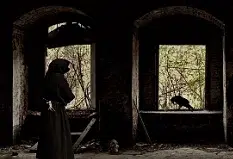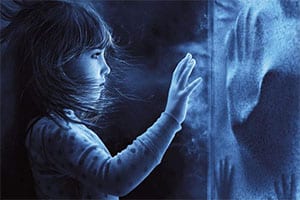 The notion of poltergeist comes from the German language and is formed from two words: poltern (which refers to generating noise or commotion ) and geist (translatable as ghost or spirit ). A poltergeist is a physical manifestation of an entity that cannot be perceived and to which a paranormal origin is attributed.
The notion of poltergeist comes from the German language and is formed from two words: poltern (which refers to generating noise or commotion ) and geist (translatable as ghost or spirit ). A poltergeist is a physical manifestation of an entity that cannot be perceived and to which a paranormal origin is attributed.
The poltergeist involves the development of a perceptible event that contradicts the laws of physics . The usual thing is that the phenomenon is attributed to the action of spirits or other entities of unverifiable existence from science and rationality.
The autonomous movement of an inanimate object , a noise whose origin cannot be explained and the sudden materialization of a thing are some of the events that are part of what is known as a poltergeist. For parapsychology , these events could be produced by ghosts .
Another tentative explanation of poltergeist phenomena alludes to unconscious telekinesis . According to this theory , a human being could make something move with the power of his mind through an energy linked to stress or emotions.
For science , the supposed poltergeist manifestations are explained according to physical laws or are simply hallucinations or even frauds . Ultrasound , the operation of electromagnetic fields , and static electricity , for example, can cause events that people are often unaware of or do not understand.
In short, we can say that the world is divided into three large groups when it comes to apparently inexplicable events : those who believe that they are spirits or other entities from the beyond or other dimensions; those who seek to justify any situation through logic and reject any possibility of life beyond what we perceive through our senses; a third group that has not yet decided on any extreme position, but rather remains on the sidelines and perhaps when it has a sufficient amount of information it will turn to one or the other.
Despite the little sympathy that exists between science and the paranormal, poltergeist hunters would be little if they did not have scientific knowledge and electronic devices . This contradiction is common to almost all alternative theories, including natural medicine and certain currents of psychology, since not all those who support different proposals oppose the traditional ones, but can accept a balance between both sides.
 In the tireless search to study the phenomena of the poltergeist group, different devices are used to take samples that are then carefully analyzed far from the affected site. Among the most common are voice recorders, thermal cameras, motion detectors, electromagnetic field meters and full spectrum cameras.
In the tireless search to study the phenomena of the poltergeist group, different devices are used to take samples that are then carefully analyzed far from the affected site. Among the most common are voice recorders, thermal cameras, motion detectors, electromagnetic field meters and full spectrum cameras.
“Poltergeist” , on the other hand, is the title of a horror film that had Tobe Hooper as director and Steven Spielberg as producer. It premiered in 1982 and then had several sequels and a remake in 2015 .
The star of the three films in this peculiar saga was Heather O'Rourke , an American actress born in 1975 and tragically died before her thirteenth birthday. Her looks and personality captivated Steven Spielberg after she replied "I don't talk to strangers" in a chance encounter. Although she had been rejected in the first test, the legendary director demanded that she be given a new opportunity, and this time she managed to pass it successfully.
Sadly, seven months after filming the third installment of Poltergeist , Heather passed away from a misdiagnosed and therefore incorrectly treated illness .
